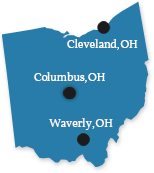Zantac, the brand name version of ranitidine, has long been one of the most popular antacids in the United States. According to Statista, Zantac 150 alone accounted for $128.9 million in sales in 2018. And Zantac is far from the only form of ranitidine on the market. Generic ranitidine-based antacids are available both by prescription and over the counter. In 2016, about 15 million ranitidine prescriptions were written in the United States.
Even with the steady stream of recalls, side effects, and prescription drug lawsuits that have given many people pause about trying new drugs, most think very little about taking a drug that seems as harmless as an antacid. However, that all changed earlier this year when Zantac and other forms of ranitidine were recalled after the U.S. Food and Drug Administration (FDA) warned about a potentially cancer-causing impurity found in the drug.
Why Was Ranitidine Recalled?
Back in September, the FDA received a report that some ranitidine medications contained low levels of any impurity called N-nitrosodimethylamine (NDMA). The original information came from Valisure, an online pharmacy that tests prescription drugs before dispensing them.
Since that initial announcement, the FDA has issued 12 updates regarding testing and various recalls of ranitidine drugs. Although the initial testing has been called into question and the levels of NDMA may not be as high as originally suggested, the presence of NDMA has been confirmed and numerous manufacturers have voluntarily recalled their ranitidine products.
What is NDMA?
NDMA is a chemical that occurs both naturally and in industrial processing. It is found in small quantities in food and water. The substance is classified as a probable carcinogen because it modifies DNA and has been shown to increase cancer risk in animals.
While NDMA has been described as an “impurity” in FDA notices and news reporting, it is important to note that it is not a contaminant that inadvertently got into some batches of ranitidine. Rather, NDMA has been described as “inherent to the molecular structure of the drug.” In other words, it is not an additive that can be removed from the formulation or a contaminant that can be guarded against in producing the drug.
Zantac Recalls
Since the FDA’s initial announcement, several drug companies have halted distribution of ranitidine drugs and/or recalled ranitidine products. Sandoz Inc. was the first to recall ranitidine products in the United States, less than two weeks after the FDA’s initial warning. Other manufacturers who have since issued recalls include:
- Apotex, which manufactures white-labeled over-the-counter ranitidine products for Walgreens, Walmart, and Rite-Aid, recalled its products;
- Sanofi recalled all over-the-counter ranitidine products;
- Dr. Reddy’s Laboratories LTD recalled all over-the-counter and prescription ranitidine tablets and capsules, which may include private-labeled drugs produced for Walmart, Walgreens, CVS, Target, and Kroger;
- GlaxoSmithKline, the branded manufacturer of Zantac, recalled its product worldwide about four weeks after the initial FDA announcement;
- Perrigo Company PLC recalled all over-the-counter ranitidine tablets;
- Novitium Pharma LLC voluntarily recalled all unexpired lots of ranitidine hydrochloride capsules;
- Lannett Company, Inc recalled all unexpired lots of prescription ranitidine syrup;
- Aurobindo Pharma USA recalled ranitidine tablets, capsules, and syrups;
- Amneal recalled ranitidine tablets and syrup;
- Glenmark Pharmaceutical Inc. recalled prescription ranitidine tablets.
Various medical supply distributors, repackagers, and retail pharmacies have also ceased distribution of ranitidine products.
Ranitidine Lawsuits
Several lawsuits have been filed in connection with the discovery of NDMA in Zantac and other ranitidine drugs, including suits against GlaxoSmithKline, Pfizer, Boehringer Ingelheim, and Sanofi. The plaintiffs in one class action allege that GlaxoSmithKline, the maker of Zantac, had access to studies dating back two decades that “showed a conclusive link to the carcinogen NDMA” and they and other companies failed to warn consumers.
How May Ranitidine Be Harmful?
Since the research into the presence of NDMA in ranitidine drugs is quite new, we do not yet know all the potential risks and possible harms to those who have taken the drug on a regular basis. The primary concern at this point is that long-term use of ranitidine drugs may increase the risk of certain types of cancer, including:
- Liver cancer;
- Kidney cancer;
- Lung cancer;
- Intestinal cancer;
- Stomach cancer;
- Pancreatic cancer;
- Colon cancer;
- Ovarian cancer;
- Esophageal cancer;
- Testicular cancer.
If you have taken Zantac or another ranitidine drug regularly over an extended period of time and have been diagnosed with one of the types of cancer listed above, it is in your best interests to speak to an attorney experienced in handling pharmaceutical cases as soon as possible.
Pharmaceutical product liability cases are extremely complex, given the scientific nature of the evidence and the vast resources of the pharmaceutical industry. At Plevin & Gallucci, our pharmaceutical product liability lawyers have the experience, resources, and network of experts necessary to effectively pursue complex litigation involving highly technical evidence.
If you or a loved one has been diagnosed with cancer after long-term use of Zantac or another ranitidine drug, schedule your free consultation with Plevin & Gallucci right now. Just call 1-855-4-PLEVIN or fill out the contact form on this site.

